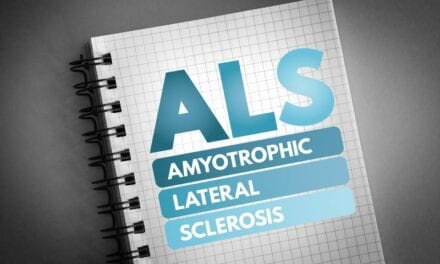Despite affecting millions of American adults, most people are not familiar with aphasia. During June, recognized nationally as Aphasia Awareness Month, the American Speech-Language-Hearing Association (ASHA) is encouraging the public to learn more about the language disorder—and the effective, often life-altering, treatment provided by speech-language pathologists.
According to the National Aphasia Association (NAA), more than 2 million people in the United States have the disorder. One third of all strokes result in the language disorder. However, past polling from NAA found that close to 85% of adults over age 25 have never heard the term aphasia. Although some gains in public awareness likely resulted following recent publicity about the actor Bruce Willis’ diagnosis, there is still much confusion about the causes, symptoms, prognosis, and treatment for the disorder.
“Aphasia can have a significant impact on individuals and their families, but professionals can help people successfully navigate their recovery,” said ASHA President Judy Rich, EdD, CCC-SLP, BCS-CL. “While everyone may not fully regain their previous communication abilities, speech-language pathologists can help people develop effective strategies to meet daily challenges and lead fulfilling lives. It’s so important that people know help is available and where they can get connected with care.”
Aphasia Causes
The disorder can occur when a person experiences changes in the brain from injury or disease. This is most often due to stroke; however, any type of brain damage can cause it. Although it is more common in older adults, 15% of individuals under the age of 65 who have their first ischemic stroke experience it.
Aphasia Types
The disorder can make it hard for someone to understand, speak, read, or write—depending on the affected parts of the brain. Often, it is described in two main categories:
- Nonfluent aphasia—A person’s speech may be halting and require great effort to produce sounds or words. A person with Broca’s aphasia may still comprehend language well. Someone with global aphasia has trouble comprehending and speaking.
- Fluent aphasia—A person can produce connected speech with intact sentence structure, but their sentences lack meaning. A person with Wernicke’s aphasia has trouble connecting words to their meaning, whereas a person with conduction aphasia is largely able to comprehend despite experiencing speech and language difficulties.
People often think that those with this disorder have cognitive issues because they struggle to communicate. This is not true: The disorder is not associated with cognitive deficits. However, word-finding difficulty—one of its hallmark symptoms—may be an early symptom of other neurological conditions, such as primary progressive aphasia (a form of dementia), that are accompanied by cognitive impairments.
Treatment Approaches
Aphasia can be addressed in several ways, depending on the difficulties that a person is having and depending on their goals. Using a person’s priorities—for example, returning to work or resuming specific responsibilities and tasks such as taking care of a child or loved one or engaging in a hobby—as a treatment target is the guiding principle of the life participation approach, one patient-centered form of treatment.
Working one-on-one and in groups, speech-language pathologists help people with aphasia reestablish their communication skills. Speech-language pathologists may also help people with aphasia find alternative ways to share ideas when they have trouble communicating. This may include drawing, writing, pointing, using gestures, and using other visual supports—these alternative methods are called augmentative and alternative communication, or AAC. Speech-language pathologists also work with family members and other important communication partners to learn strategies that support their loved ones.
Resources for the Public and Allied Professionals
This Aphasia Awareness Month, ASHA is sharing the following resources:
What Is Aphasia?—In this video series, two new videos featuring interviews with people experiencing aphasia help illustrate the impact of the language disorder. View them here and here.
ASHA Voices Podcast—Speech-language pathologist Fabi Hirsch appeared on the ASHA Voices podcast to discuss working with high-profile clients with aphasia, including former U.S. Representative Gabby Giffords.
General Information—ASHA’s webpage on aphasia provides important information on signs/symptoms, causes, and treatment options.
[Source(s): American Speech-Language-Hearing Association, PR Newswire]
Related Content:
Understanding Bruce Willis’ Aphasia Diagnosis
Post-Stroke and Post-Surgery Aphasia: What Are the Differences?





